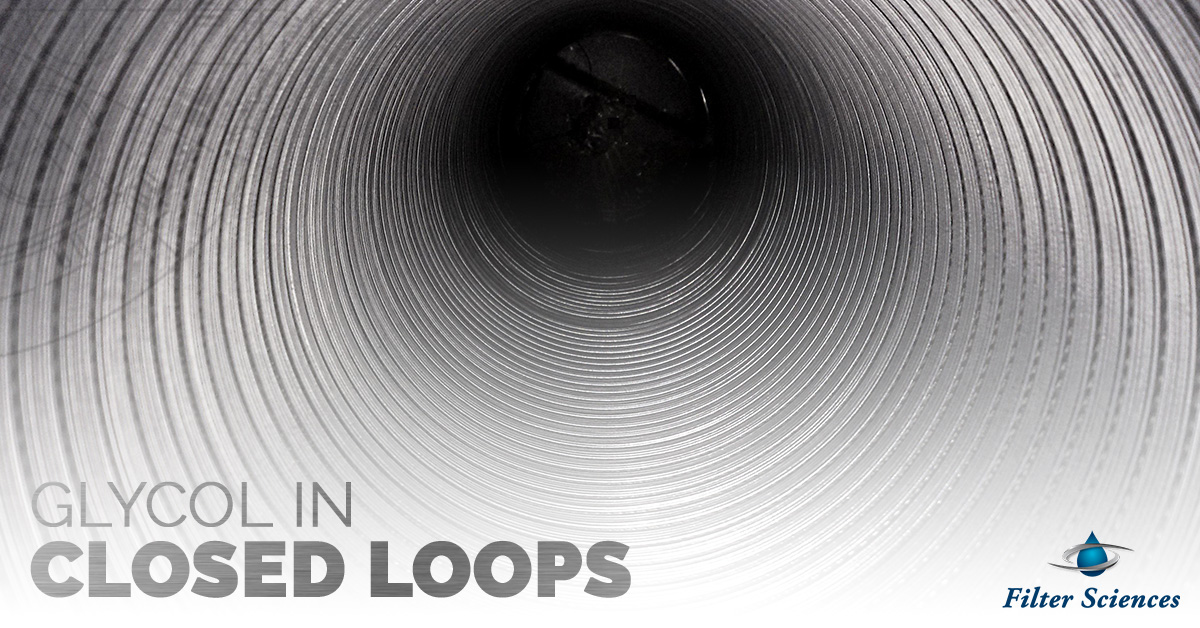
Keep your closed-loop system clean and protect pump seals with bag filtration from Filter Sciences!
How does the glycol protect the loop from freezing?
Pure water freezes at 32° F, but a 60 percent solution of ethylene glycol pushes the freezing point down to -60° F. While the freeze point of pure glycol is only -39° F, the synergy between glycol and water results in a much lower freezing point. This is very important for closed-loop systems that may be exposed to freezing conditions.
 Why is filtration important?
Why is filtration important?
Closed systems circulate the same body of fluid and are not subject to blowdown and makeup in the way that steam boilers and cooling towers are.
The fluid in closed systems usually contains a suspension of fine, abrasive particles which is harmful to the equipment and leads to unscheduled shutdowns and increased maintenance. There are various sources of these particles, mostly resulting from corrosion—oxygen dissolved in the fluid being an important contributor. Closed systems are rarely oxygen-free during operation, due to constant air leakage through pressure equalization valves, pipe joints, pump packing, etc. In addition, a quantity of oxygen, although small, is continually added to the system through makeup water. Since most systems are largely constructed of steel, this leads to the generation and circulation of suspended iron oxide particles throughout the equipment. Other sources of particulate matter are mill scale and debris left over from assembly, as well as material introduced when the system is opened up for routine maintenance. Closed systems are frequently constructed of a variety of metals, generating more iron oxide particles as a result of galvanic corrosion.
Suspended iron oxide particles and other debris, are very abrasive to mechanical pump seals and can coat or plug up heating coils, causing them to lose their heat-transfer ability. Additionally, areas of the piping and equipment that become covered with debris are subject to under-deposit corrosion, leading to further damage and release of corrosion by-products.
The glycol in a system does not protect any metal from corrosion. It is only the corrosion inhibitors that are added to the glycol that protect the metal. Often the breakdown of glycol results in accelerated corrosion and corrosion by-products, in particular, iron. Proper micron rated bag filtration can remove unwanted debris, particulate, and corrosion by-products extending the life of the system and reducing potentially costly downtime.
Benefits of Bag Filtration in a closed loop:
- Keeps the system clean
- Protects pump seals
- Prolongs the life of mechanical equipment
- Provides a warning of sudden system disruptions
- Reduces downtime
- Reduces maintenance and energy costs
